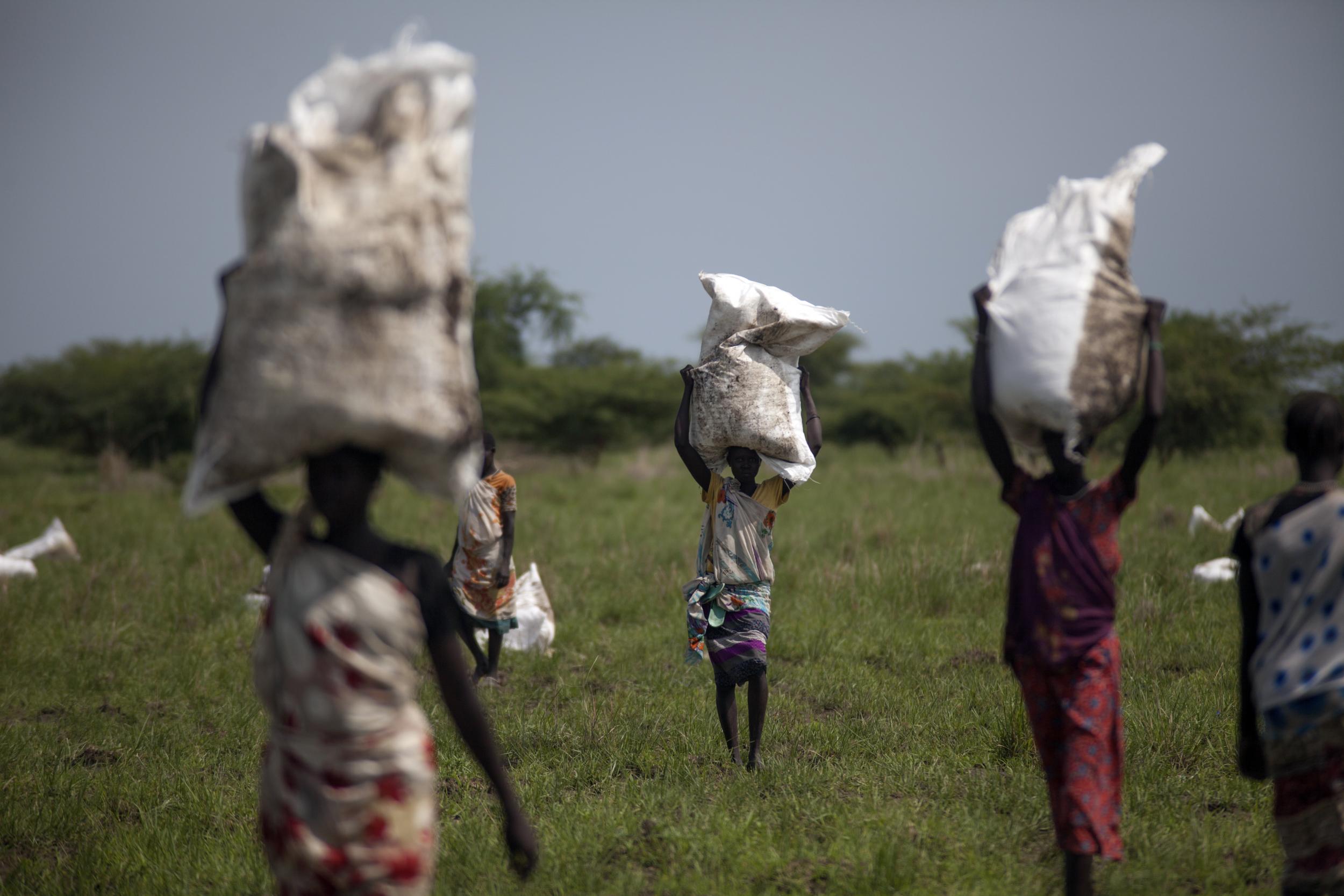Oxfam calls for urgent action to prevent South Sudan famine
Millions said to be at risk due to poor harvests

Your support helps us to tell the story
From reproductive rights to climate change to Big Tech, The Independent is on the ground when the story is developing. Whether it's investigating the financials of Elon Musk's pro-Trump PAC or producing our latest documentary, 'The A Word', which shines a light on the American women fighting for reproductive rights, we know how important it is to parse out the facts from the messaging.
At such a critical moment in US history, we need reporters on the ground. Your donation allows us to keep sending journalists to speak to both sides of the story.
The Independent is trusted by Americans across the entire political spectrum. And unlike many other quality news outlets, we choose not to lock Americans out of our reporting and analysis with paywalls. We believe quality journalism should be available to everyone, paid for by those who can afford it.
Your support makes all the difference.Oxfam have called for action to prevent millions of people in South Sudan being hit by a deadly famine.
The warning comes after a report from the Famine Early Warning Network (FEWSNET) was released claiming a fifth of households in the South Sudanese town of Pibor could already be classed as hitting famine levels of hunger.
Communities in the area have suffered through four years of warfare which have depleted food stocks, preventing households from stockpiling food for times of hardship.
People in the region have been forced to eat grass and weeds to stave off hunger, causing them to fall ill.
Food availability has plummeted in Pibor, which sits in Boma state in the east of the country, after pests and flooding destroyed harvests. Boma also sees frequent and violent cattle raids from neighbouring states.
As the rainy season sets in, much of the food people depend on has to be flown in from Juba, however this sustenance is unaffordable for many.
South Sudan was hit by a severe hunger crisis in 2017 with Leer and Mayendit declared in famine. Aid efforts averted an even greater catastrophe, however with this year's harvest not due until at least July, South Sudan is facing crisis again.
Nicolo Di Marzo, Oxfam's acting country director in South Sudan, said: “Waiting for a formal declaration of famine is not good enough. People are already starving and desperate.
"A woman in Pibor said that her family have resorted to cooking grasses and weeds that are making them sick – but that they have no choice if they want to survive.
“Aid efforts have so far kept famine at bay, but the need is growing at such an alarming rate that Oxfam and other aid organisations are struggling to keep up. We are seeing similarly worrying trends across the country.
"This is not an isolated problem. Urgent action is needed now to save lives in Pibor and across South Sudan.”
Join our commenting forum
Join thought-provoking conversations, follow other Independent readers and see their replies
Comments